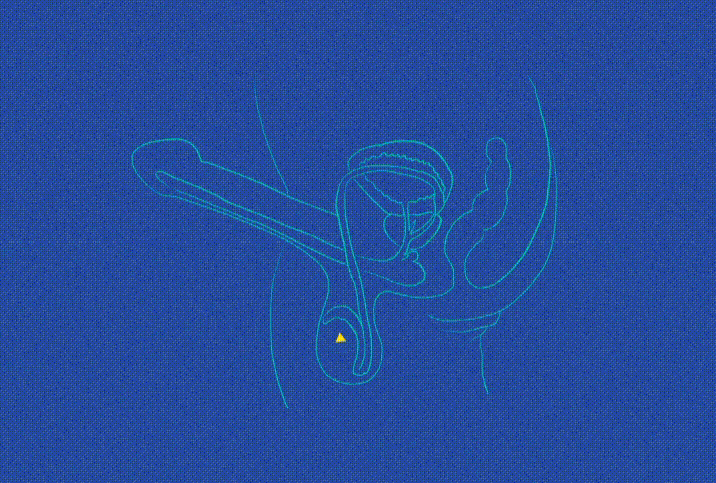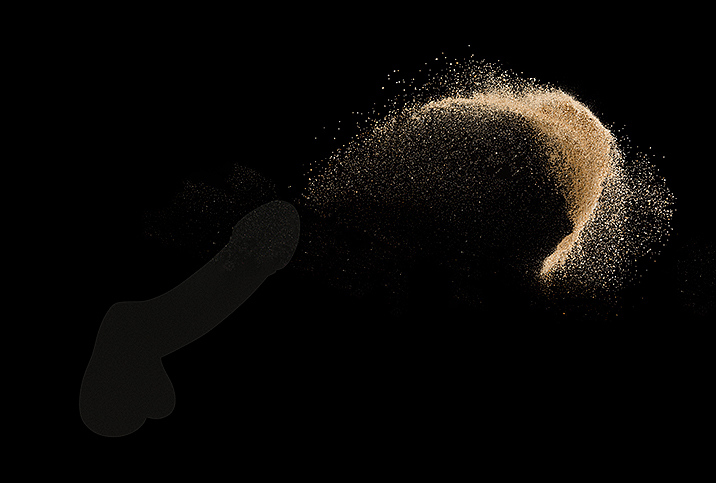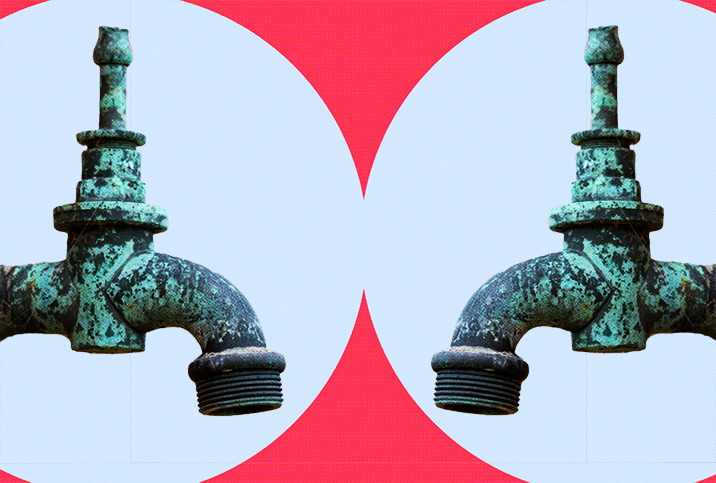Don't Be Alarmed By an Absence of Semen With Your Orgasm

We all know sex is about more than orgasms, and we also know the male orgasm is more than ejaculation.
However, orgasms are important to a lot of men and their partners, and for a lot of people, ejaculation marches in lockstep with an orgasm. This isn't medically true, but it can be difficult to separate male orgasm from male ejaculation. Even in discussions with doctors and other sexual health professionals, it's easy to conflate the observable production of sperm, or ejaculation, with its common contextual counterpart: the male orgasm.
That being said, there are important medical distinctions between the two, and the most relevant distinctions apply to the lack of either or both.
Anejaculation is the inability to ejaculate semen; a man can produce sperm but can't expel them with ejaculate, because there is none. Anorgasmia is the inability to achieve orgasm.
It's not unheard of for a man to ejaculate without experiencing orgasm. On the other hand, the sensation of orgasm can occur in men without ejaculation for a number of reasons. In some cases, anejaculation may be accompanied by anorgasmia; in other instances, anorgasmia without anejaculation is possible.
Anejaculation and ED
Men may have difficulty with erections for a wide variety of reasons, said Petar Bajic, M.D., a urologist and men's sexual health specialist with the Cleveland Clinic. Some of these men also have trouble ejaculating and/or orgasming.
"Many men I see in their 50s and 60s have various cardiovascular risk factors, like high blood pressure, high cholesterol, diabetes or a history of tobacco use, and those are the guys I would say most commonly are bothered by the inability to reach orgasm, which might be because their erections are not lasting long enough where they can't get enough stimulation to reach that point," Bajic said. "So I'm very specific in my questioning about whether it's an erection problem."
Bajic asks patients with ejaculatory issues to be specific about their problems achieving orgasm and/or producing visible ejaculate. Does the problem persist during masturbation and during sexual intercourse? Are they able to achieve orgasm and/or ejaculate at all during sexual intercourse or does the dysfunction occur on a spectrum? These questions help determine whether to seek treatment for erectile dysfunction (ED) or something else.
Anejaculation is the inability to ejaculate semen; a man can produce sperm but can't expel them with ejaculate, because there is none.
"That question about whether they can reach orgasm with masturbation is important, because you actually don't even need to have an erection to experience an orgasm," Bajic said. "So it's not uncommon that I see a man who has no trouble reaching orgasm when they masturbate but might be unable to or it takes a long time when they are having sex."
Bajic said when stimulation from masturbation doesn't sync satisfactorily with pleasure achieved during sexual intercourse, it's called idiosyncratic masturbation. He said sex therapy is a valuable treatment option for patients with this problem.
Anejaculation can also be a side effect of certain drugs, such as mental health medications, which affect sexual pleasure, orgasm and ejaculation.
How little we know about ejaculation
We have a lot to learn about ejaculation in general. Kevin McVary, M.D., is an expert in the field as a urologist and professor with Loyola Medicine in Maywood, Illinois. He summarized the medical field's knowledge of ejaculation in 10 words: "We don't know anything about the ejaculation process in humans."
However, McVary said researchers have identified certain series of cells that control ejaculation in animals. They discovered they could turn off the cells in rats that signaled ejaculation to the body—or how to hit the off button for rat ejaculation.
McVary speculated humans may have similar or the exact ejaculation-triggering cells, and if we could somehow target them, we could effectively turn human ejaculation on or off, as had been done in rats during previous research.
He also indicated anejaculation may have biological origins we don't currently understand.
Other considerations
It's worth mentioning that what appears to be anejaculation may not actually be an absent eruption, but could be a result of sperm getting turned around on the way toward the urethra.
Retrograde ejaculation may explain what's going on if you have the sensation of orgasm without producing semen upon climax, also known as dry orgasms. Occasionally, and for a number of reasons, ejaculate ends up rerouting to the bladder instead of exiting the body through the penis. Your doctor can work with you to figure out whether a lack of observable ejaculate is due to retrograde ejaculation or some other cause.
Ejaculatory dysfunction can impede attempts to conceive a child, so if you have short- or long-term interests in starting a family and you've experienced unusual interruptions to your usual orgasm or ejaculation experience, it may be prudent to see a family doctor or sexual health specialist.

















